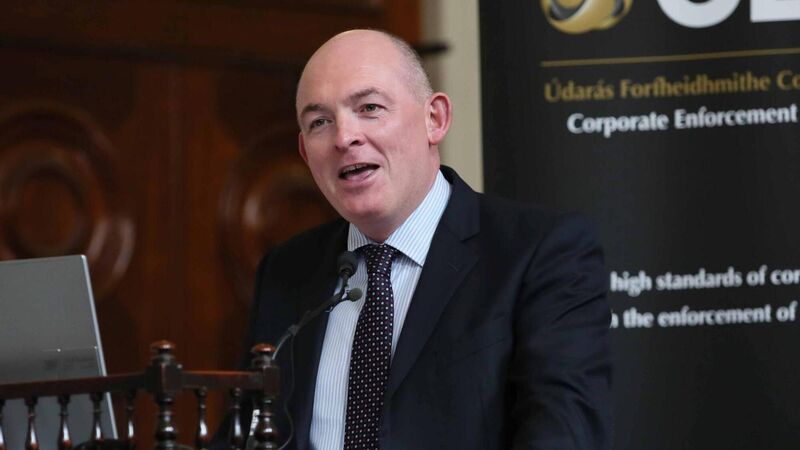Attorney General advised of 'legal uncertainty' in wording of Care referendum

Rossa Fanning wrote to Roderic O’Gorman, the Taoiseach, and the Tánaiste on December 8 to summarise the extensive legal advice his office had given to the Government in drafting the wording of the two referendums.
The Attorney General advised the minister for children that the use of the word “strive” in the Care referendum would give rise to legal “uncertainty”, which in turn could have “significant financial implications” for the State.
Rossa Fanning wrote to Roderic O’Gorman, together with the Taoiseach and the Tánaiste on December 8 last, to summarise the extensive legal advice his office had given to the Government in drafting the wording of the two referendums.
The correspondence, first reported on by The Ditch news site, notes specific concerns regarding the wording of the Care referendum — which seeks to remove reference to the woman’s place in the home from the Constitution, along with replacing it with a section noting the importance of care in the family and the consequent onus on the State to “strive to support” that care.
That referendum’s wording has already come in for sustained criticism from carers and some advocacy groups, which claim the proposed amendment does not go far enough in recognising and supporting the work of carers.
Writing to Mr O’Gorman the day after the referendums’ wording was first announced on December 7, Mr Fanning noted that advice had been provided to the Government with regard to other possible phrases to be used in lieu of “strive”, those being “shall endeavour” and “shall take reasonable measures” — the latter having already been recommended by the Citizen’s Assembly on Gender Equality.
Mr Fanning said that there is a “lack of guidance from the courts” as to how “strive” will be interpreted, noting that the only other mention of “strive” in the Constitution is specifically held to be unusable in a court of law.
“There is, therefore, uncertainty as to the likely meaning and effect of an obligation to ‘strive’ to support the provision of care ... and whether, in its interpretation by the courts, it would be regarded as imposing a more onerous obligation than an obligation to ‘endeavour’,” Mr Fanning wrote.
He noted that the Care referendum, if adopted, would create “real potential for a significant volume of litigation consequent on the amendment”, likely to be brought by people who “may be highly vulnerable”.
“It is foreseeable that this could arise in areas such as health, childcare, social protection, education, and immigration,” he wrote.
“There can be little doubt that the obligation on the State to ‘strive’ to support the provision of care will have real effects which will be enforced by the courts,” Mr Fanning wrote.
This, in turn, “could result in declaratory orders against the State with significant financial implications,” Mr Fanning said.
Minister O’Gorman did not respond to a request for comment.
Defending the Care referendum wording, however, one source said the Attorney General’s advice had been “dressed up”.
“If you read the advice quoted, there can be little doubt the referendum will have real work effects. This is exactly what the yes side has been saying, that the amendment will place a real and substantive onus on the State to care for families.
“The no side has been saying that the Care amendment won’t have legal meaning.
“The Attorney General is clearly saying that it will have a real-world impact,” the source added.